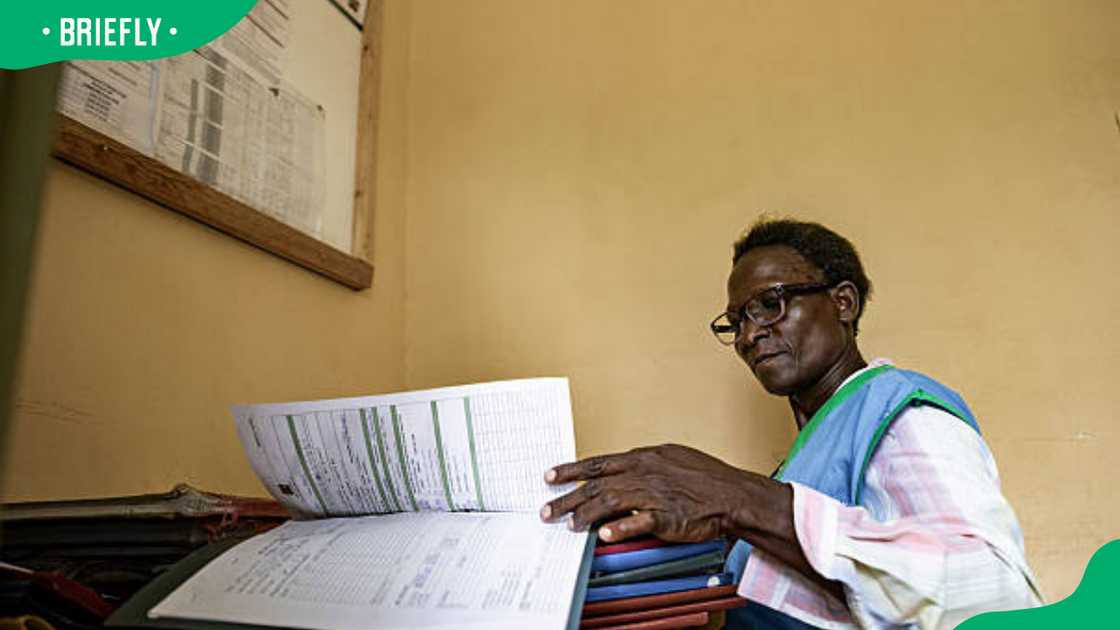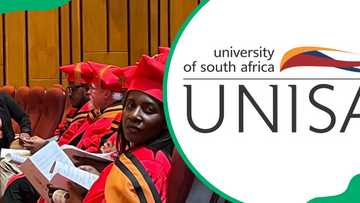What is auxiliary nursing? Roles, duties, and career paths in South Africa
Auxiliary nurses support professional nurses by providing essential everyday healthcare tasks. They are the heartbeat of patient support and wellbeing, and their work enables smoother hospital operations and better patient experiences.

Source: Getty Images
TABLE OF CONTENTS
Key takeaways
- Auxiliary nursing training in South Africa takes a year of full-time study, leading to a higher certificate in auxiliary nursing.
- In South Africa, auxiliary nurses earn an average annual salary of between R70,000 and R163,000 as per Payscale.
- Auxiliary nurses support professional nurses by providing basic nursing care to patients.
What is Auxiliary nursing?
Auxiliary nursing is a healthcare profession where the auxiliary nurse works under the supervision of professional nurses to provide basic nursing care to patients. They are involved with supporting patients' daily living activities, performing fundamental clinical tasks, and preparing patients for medical procedures.

Source: Getty Images
An auxiliary nurse's duties and responsibilities in a hospital
An auxiliary in a hospital primarily assists nurses, doctors, and other healthcare professionals by supporting patient care. Their duties include:
- Helping patients with daily activities such as washing, dressing, toileting, and mobility.
- Preparing patients for examinations and treatment.
- Distributing and serving food.
- Feeding patients who cannot feed themselves.
- Performing basic clinical tasks like taking vital signs, collecting samples, and monitoring patient conditions.
- They also perform tasks to maintain patient comfort and hygiene.
- Assist in moving patients within the hospital.
- Ensure a clean and safe environment.
Auxiliary nurse requirements
To pursue an auxiliary nursing course, prospective students should have the following grades in the respective subjects:
- Language English: NSC achievement rating of 4 (50-59%)
- Mathematical literacy: NSC achievement rating of 3 (40-49%)
- Computer literacy: NSC achievement rating of 3 (40-49%)
- Life Sciences: NSC achievement rating of 3 (40-49%)
How long does training take for auxiliary nursing?
In South Africa, auxiliary nursing training takes a year of full-time study. This training leads to a Higher Certificate in Auxiliary Nursing, recognised by the South African Nursing Council (SANC), and prepares students to register as Auxiliary Nurses. The course combines theoretical knowledge with practical clinical experience in accredited healthcare facilities.

Source: Getty Images
Is there an auxiliary nursing course at UNISA?
Besides offering a degree in nursing, the University of South Africa also offers a Higher Certificate in Auxiliary Nursing. With this certificate, you can further your studies by pursuing a Bachelor of Science in Nursing or another degree in Health Sciences.
Career paths of an auxiliary nurse in South Africa
In South Africa, auxiliary nurses have several career paths they can pursue to advance in the nursing field and the healthcare sector. Here are some of the standard and recognised career progression routes for auxiliary nurses:
- After working as an auxiliary nurse, many choose to further their education and complete a 2-year diploma program to become an enrolled nurse.
- Auxiliary nurses can advance to become registered nurses by completing a 3-to 4-year Bachelor of Nursing degree or diploma.
- Experienced auxiliary and enrolled nurses may advance to supervisory roles within healthcare institutions.
- They can also transition into roles in community health work, social auxiliary work, or allied health roles.
Exploring auxiliary nurses' earnings
According to Indeed, an auxiliary nurse in South Africa earns an average annual salary of R128,521. However, Payscale estimates an auxiliary nurse's salary to range between R70,000 and R163,000 annually, with an average of R137,006.

Source: Getty Images
Trivia
- After completing the course, graduates must register with SANC to legally practice as auxiliary nurses.
- Auxiliary nurses can pursue further studies, such as a National Diploma or Bachelor's degree in Nursing, to progress to enrolled or registered nurse roles.
- Recognition of Prior Learning (RPL) options may be available for students with related experience or qualifications.
- There are also shorter assistant nursing courses lasting 3 to 5 months, but the standard recognised auxiliary nursing qualification usually requires one academic year of training.
Summary
Auxiliary nursing in South Africa is a vital healthcare role centred on delivering fundamental nursing care while supporting registered nursing staff. It requires completing a one-year Higher Certificate and registration with SANC, and it offers clear pathways for career progression within the healthcare field.
READ MORE: Auxiliary nursing course at UNISA and the requirements
Briefly.co.za shared an article on the auxiliary nursing course at UNISA. The institution offers a Higher Certificate in Auxiliary Nursing to prospective students who have not acquired the requirements for a bachelor's degree in nursing.
The auxiliary nursing course equips students with the skills to work under the supervision of registered nurses.
Proofreading by Kelly Lippke, copy editor at Briefly.co.za.
Source: Briefly News





